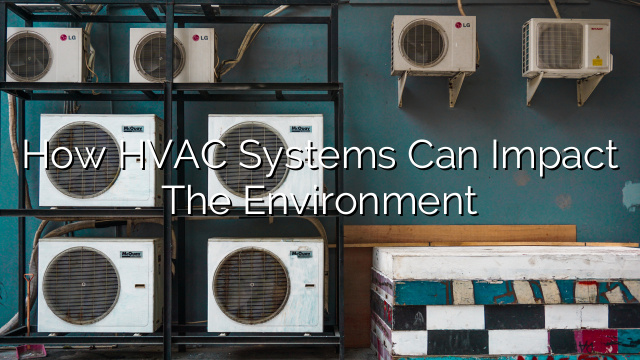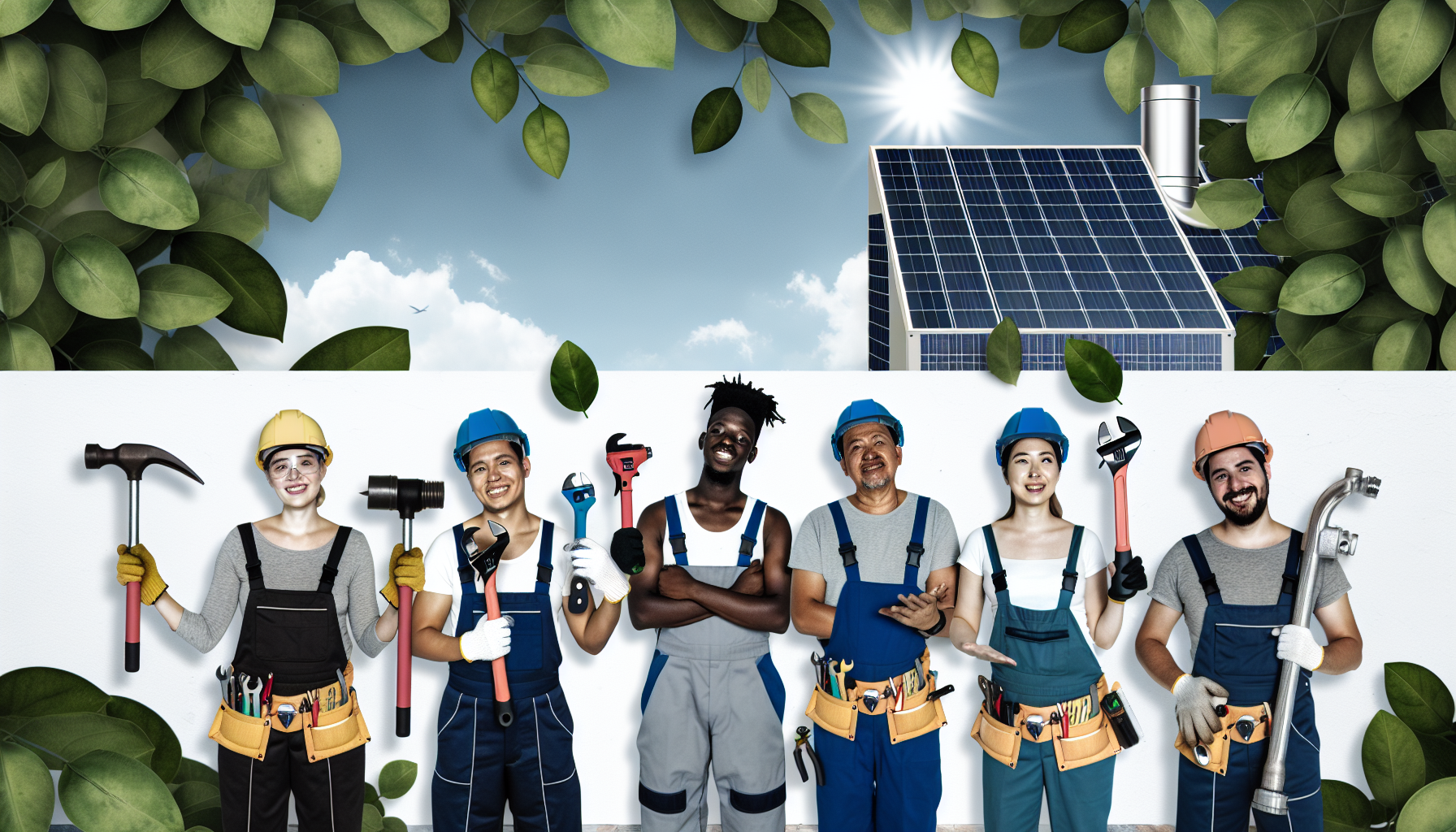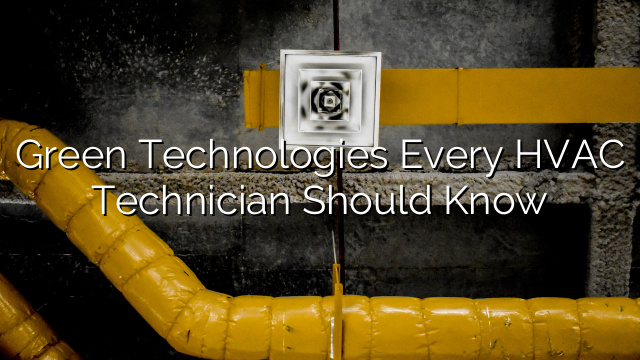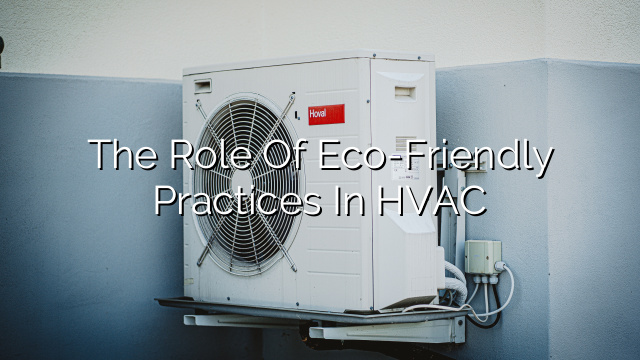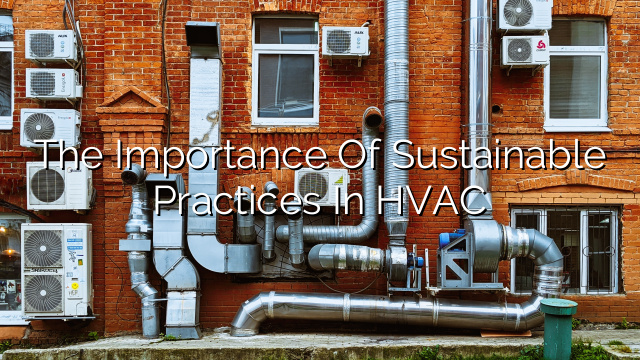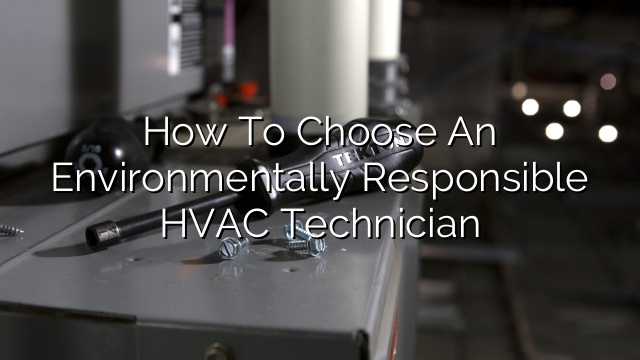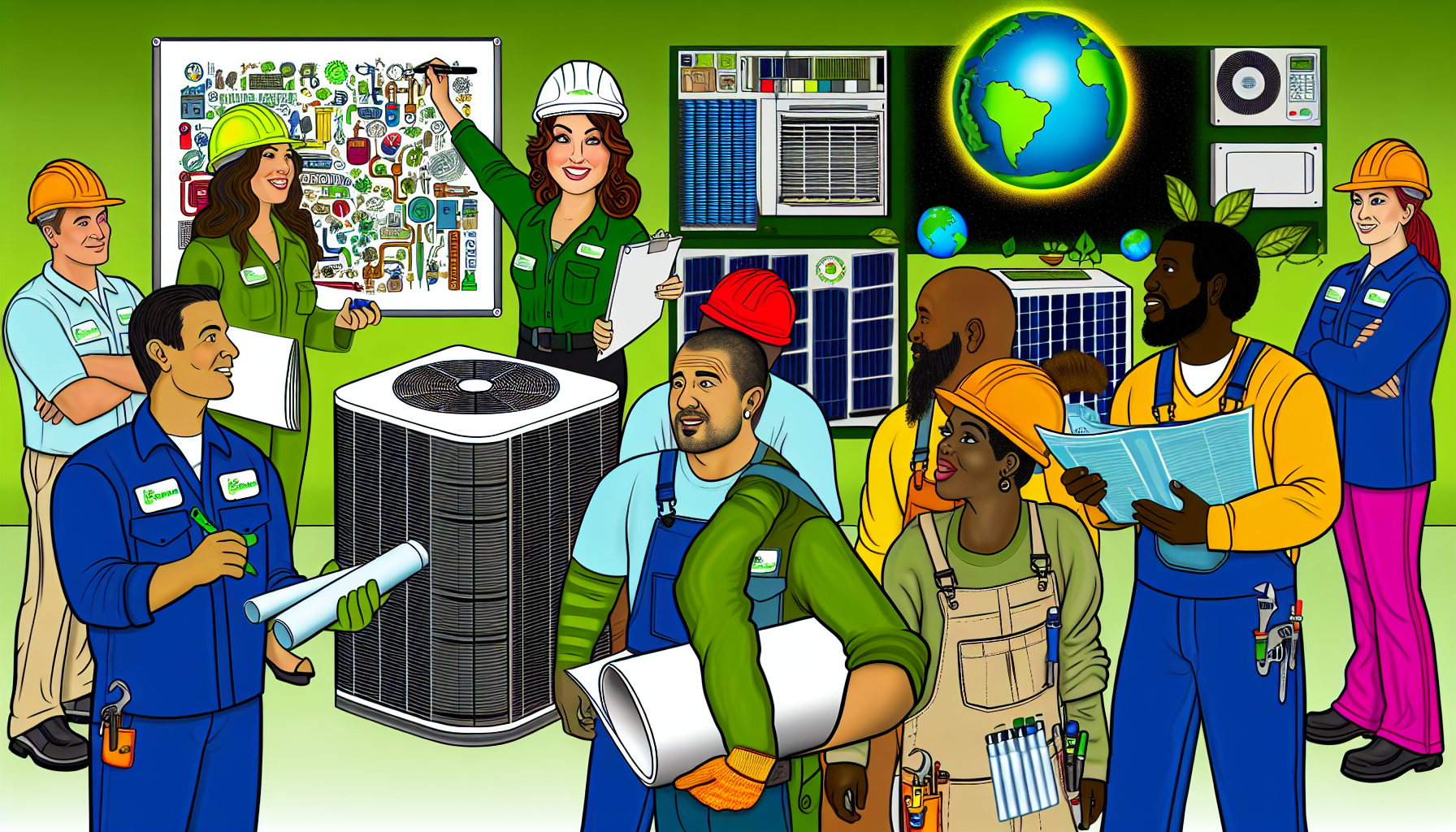Hiring HVAC Tech > Environmental Considerations > How HVAC Systems Can Impact the Environment
In today’s world, environmental considerations are becoming increasingly important. It’s crucial for businesses and individuals to think about the impact they have on the environment and take steps to minimize any negative effects. This includes HVAC systems, which play a significant role in a building’s energy consumption and overall environmental impact.
The Environmental Impact of HVAC Systems
HVAC systems have a direct impact on the environment in several ways:
- Energy Consumption: HVAC systems are responsible for a significant portion of a building’s energy consumption. As such, inefficient systems can lead to excessive energy use and increased greenhouse gas emissions. On the other hand, energy-efficient HVAC systems can significantly reduce a building’s carbon footprint and save on energy costs in the long run.
- Refrigerant Leaks: Many HVAC systems require the use of refrigerants to cool and dehumidify the air. These refrigerants can be harmful to the environment if they leak. Certain types of refrigerants, such as hydrofluorocarbons (HFCs), are known to be potent greenhouse gases that contribute to climate change. Regular maintenance and proper handling of refrigerants are essential to prevent leaks and minimize environmental impact.
- Waste Heat: HVAC systems generate waste heat that is expelled into the atmosphere. This waste heat can have unintended consequences on the local environment. In urban areas, for example, the excess heat from multiple HVAC systems can contribute to the phenomenon known as the “urban heat island effect,” where cities are significantly warmer than their surrounding rural areas. It’s important to consider ways to minimize waste heat and its impact on the environment.
- Indoor Air Quality: HVAC systems play a crucial role in maintaining indoor air quality. Poorly maintained HVAC systems can harbor mold, bacteria, and other contaminants that can have harmful effects on indoor air quality, leading to various health issues, including respiratory problems. Regular maintenance and proper filtration are essential for maintaining clean and healthy indoor air.
Why Hiring the Right HVAC Tech Is Crucial
HVAC systems are complex and require regular maintenance to function optimally. Hiring the right HVAC technician is crucial to ensure your system operates efficiently and has minimal impact on the environment. Here are several reasons why hiring the right HVAC tech is essential:
- Energy Efficiency: An experienced HVAC technician can assess your system’s energy efficiency and recommend improvements. By optimizing your HVAC system’s performance, you can save on energy costs and reduce your environmental impact.
- Refrigerant Handling: Proper handling of refrigerants is essential to prevent leaks and minimize environmental harm. An HVAC tech who is certified in refrigerant handling knows how to handle, transport, and dispose of refrigerants safely and responsibly.
- Preventative Maintenance: Regular maintenance is crucial for keeping HVAC systems running smoothly. A skilled HVAC technician can identify potential issues before they become major problems, preventing energy waste and minimizing environmental impact.
- Indoor Air Quality: HVAC technicians can ensure your system is properly cleaned and maintained to promote good indoor air quality. By preventing the buildup of contaminants, you can protect the health and well-being of building occupants and minimize the need for additional energy-consuming air filtration systems.
FAQs
- How often should I have my HVAC system serviced?
It’s generally recommended to have your HVAC system serviced at least once a year. For optimal performance and energy efficiency, it’s best to have the system serviced before the start of each heating and cooling season. - Can I handle HVAC maintenance on my own?
While there are some maintenance tasks that homeowners can handle, such as replacing air filters, it’s best to leave more complex tasks to trained HVAC technicians. They have the knowledge and expertise to identify potential problems and ensure your system operates safely and efficiently. - How can I improve the energy efficiency of my HVAC system?
There are several ways to improve the energy efficiency of your HVAC system. Regular maintenance, including cleaning or replacing air filters, can help improve airflow. Upgrading to a programmable thermostat can also help optimize energy usage by adjusting temperatures based on occupancy. For significant efficiency improvements, consider upgrading to a modern, energy-efficient HVAC system. - What certifications should I look for when hiring an HVAC technician?
When hiring an HVAC technician, look for certifications such as NATE (North American Technician Excellence) or EPA 608 certification, which indicates their knowledge and expertise in HVAC installation, maintenance, and refrigerant handling. - Is regular HVAC maintenance worth the cost?
Yes, regular HVAC maintenance is worth the cost. It helps extend the lifespan of your system, improves energy efficiency, prevents breakdowns, and ensures the comfort and health of building occupants. The cost of regular maintenance is usually much lower than the cost of major repairs or system replacement.

